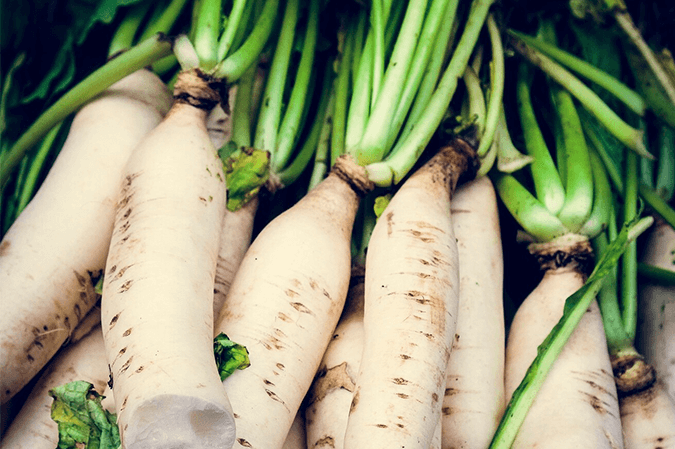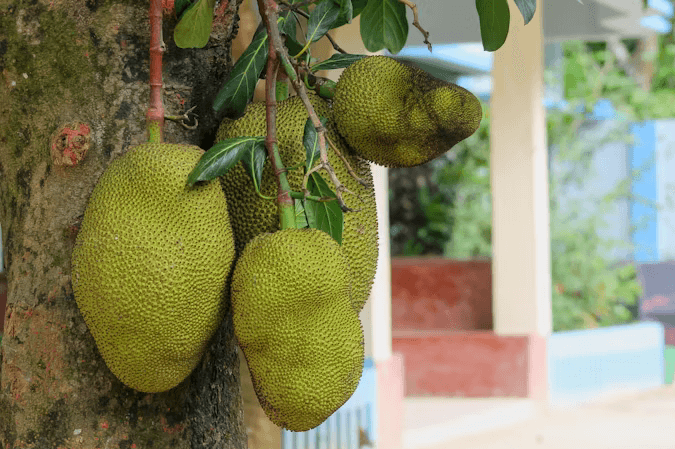Nutritional Value of Radish (Per 100 grams)
| Nutrient | Amount |
| Calories | 16 kcal |
| Water | 95.27 g |
| Carbohydrates | 3.40 g |
| Protein | 0.68 g |
| Total Fat | 0.10 g |
| Dietary Fiber | 1.6 g |
| Calcium | 25 mg |
| Iron | 0.34 mg |
| Magnesium | 10 mg |
| Phosphorus | 20 mg |
| Potassium | 233 mg |
| Sodium | 39 mg |
| Vitamin C | 14.8 mg |
| Folate (Vitamin B9) | 25 µg |
| Vitamin A | 7 IU |
| Vitamin K | 1.3 µg |
Interesting Facts About Radish
- Ancient Crop: Radishes are one of the oldest cultivated crops, believed to have been domesticated in Southeast Asia thousands of years ago. They were highly valued by the ancient Egyptians, who included them in their diet and even used radish seeds to produce oil.
- Quick Growth: Radishes are known for their rapid growth. Some varieties can be ready for harvest in as little as three weeks from planting, making them an ideal crop for quick yields.
Origin of Radish
Radish (Raphanus sativus) is believed to have originated in Southeast Asia or the Mediterranean region. It has been cultivated for thousands of years and spread globally due to its culinary versatility and health benefits.
Health Benefits of Radish
- Rich in Nutrients: Radishes are low in calories but high in vitamins, minerals, and antioxidants, making them a nutritious addition to any diet.
- Digestive Health: The high fiber content in radishes aids in digestion and helps prevent constipation.
- Hydration: With a high water content, radishes help keep the body hydrated and support healthy skin.
Specific Benefits for Body Parts or Organs
- Liver: Radishes are known to support liver function by helping to detoxify the body and reduce jaundice symptoms.
- Skin: The antioxidants and Vitamin C in radishes promote healthy skin, reduce oxidative stress, and help in fighting skin conditions such as acne.
- Kidneys: Radishes have diuretic properties that help in flushing out toxins and preventing kidney infections.
Sources
- USDA FoodData Central
- “Vegetables: Growing, Cooking, and Healing” by Elisabeth Staub
- Healthline



